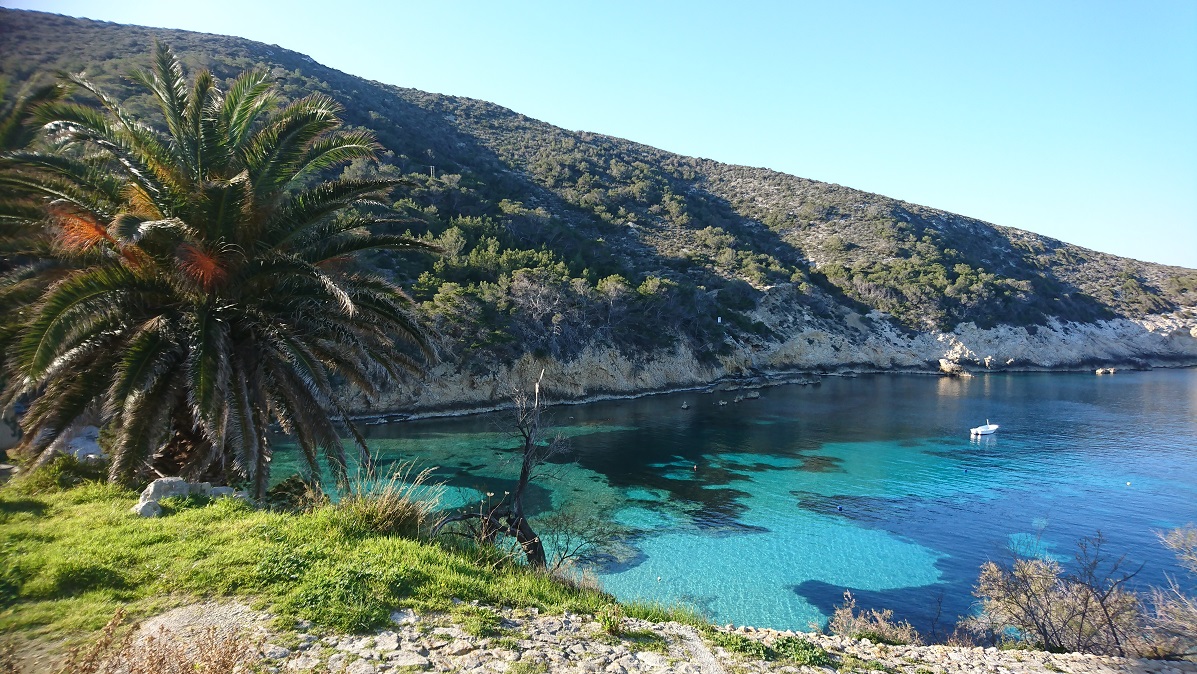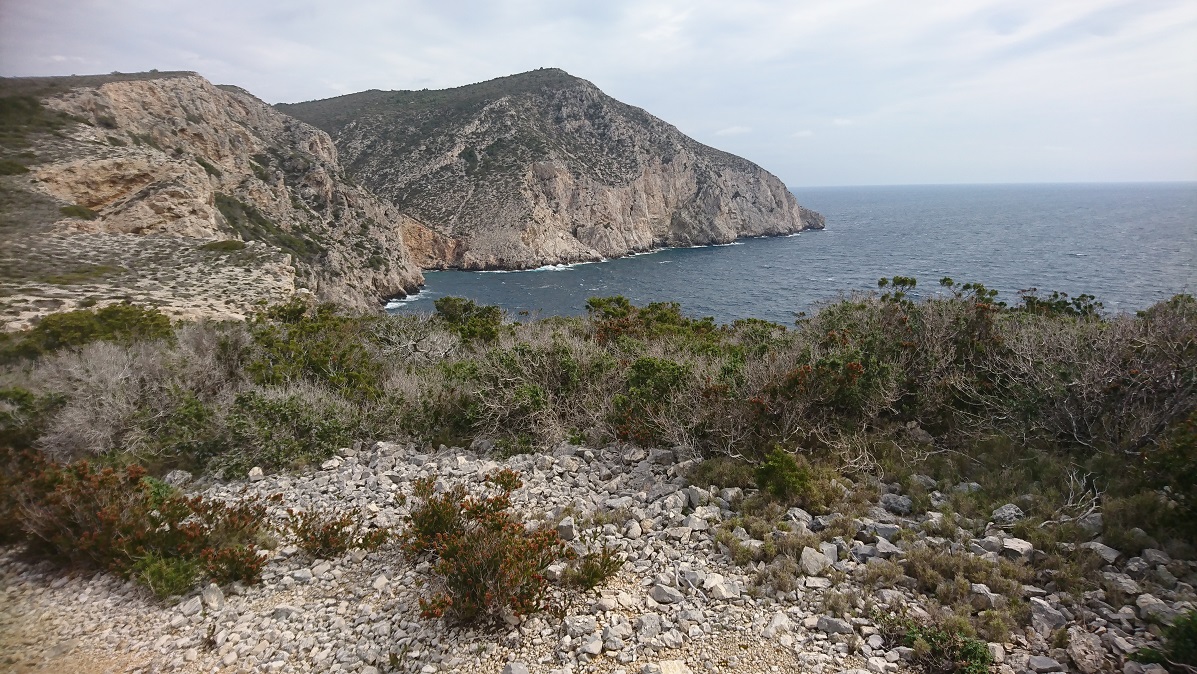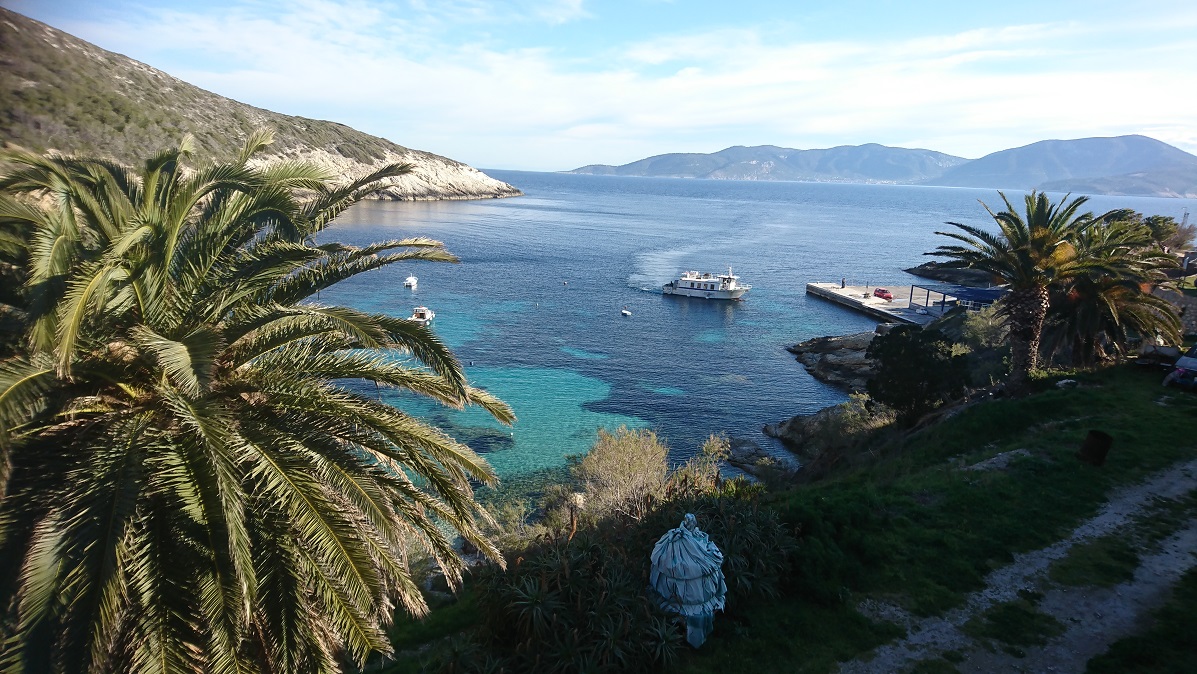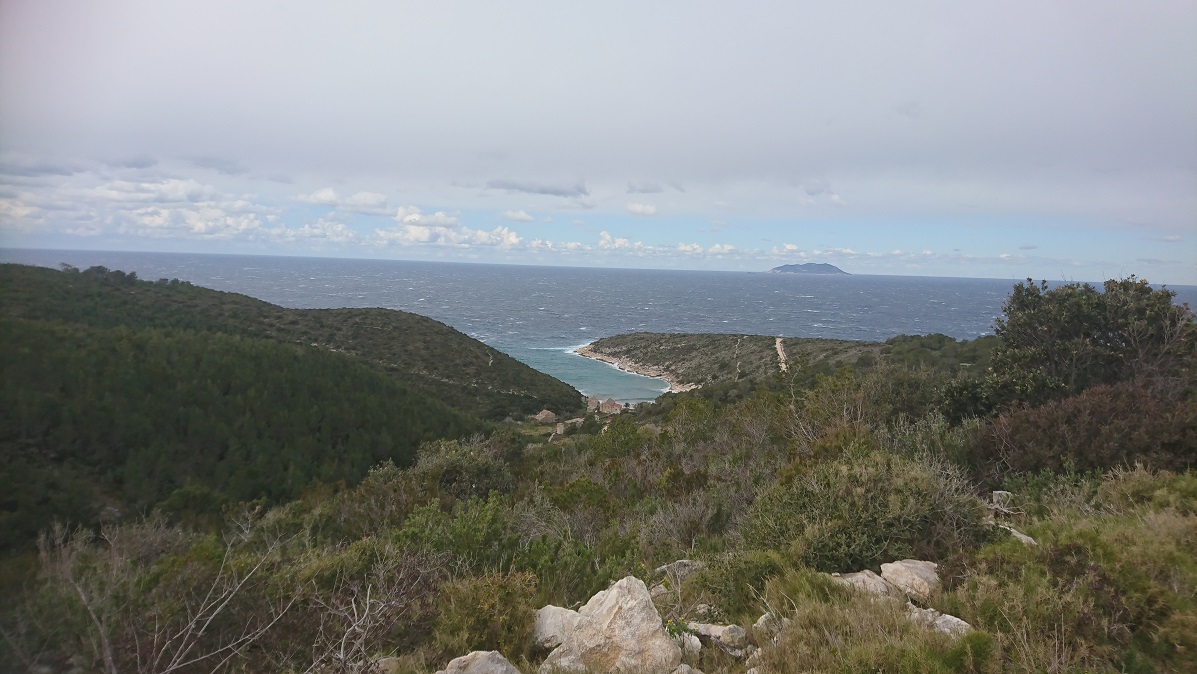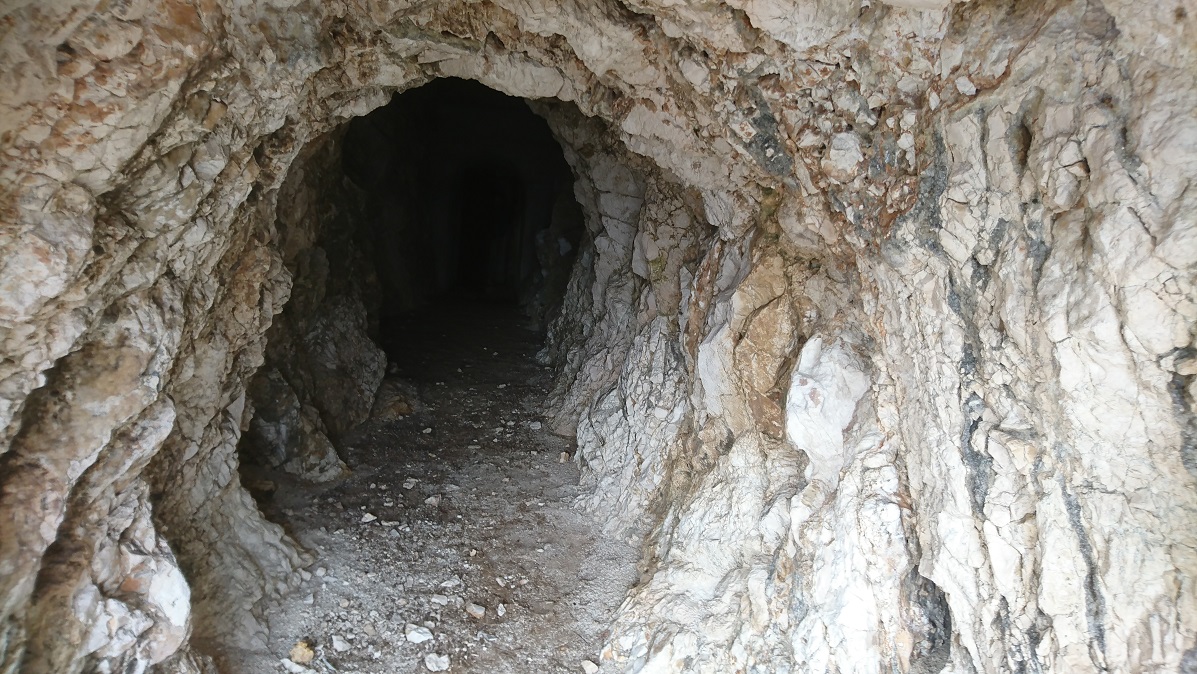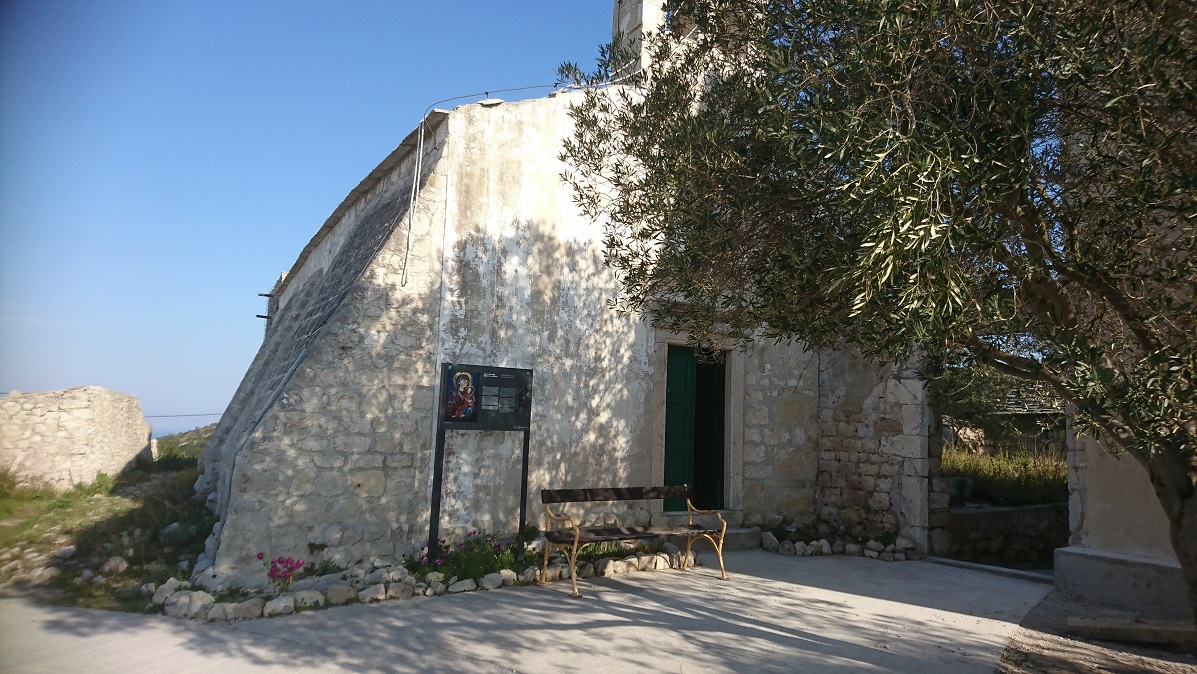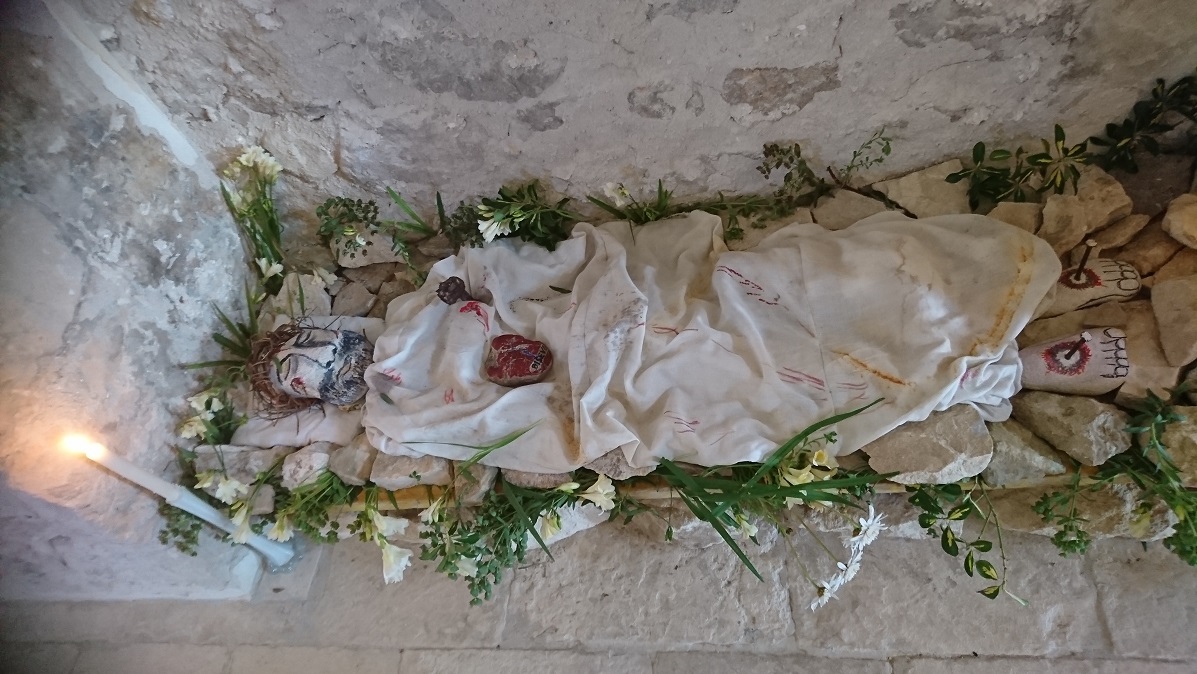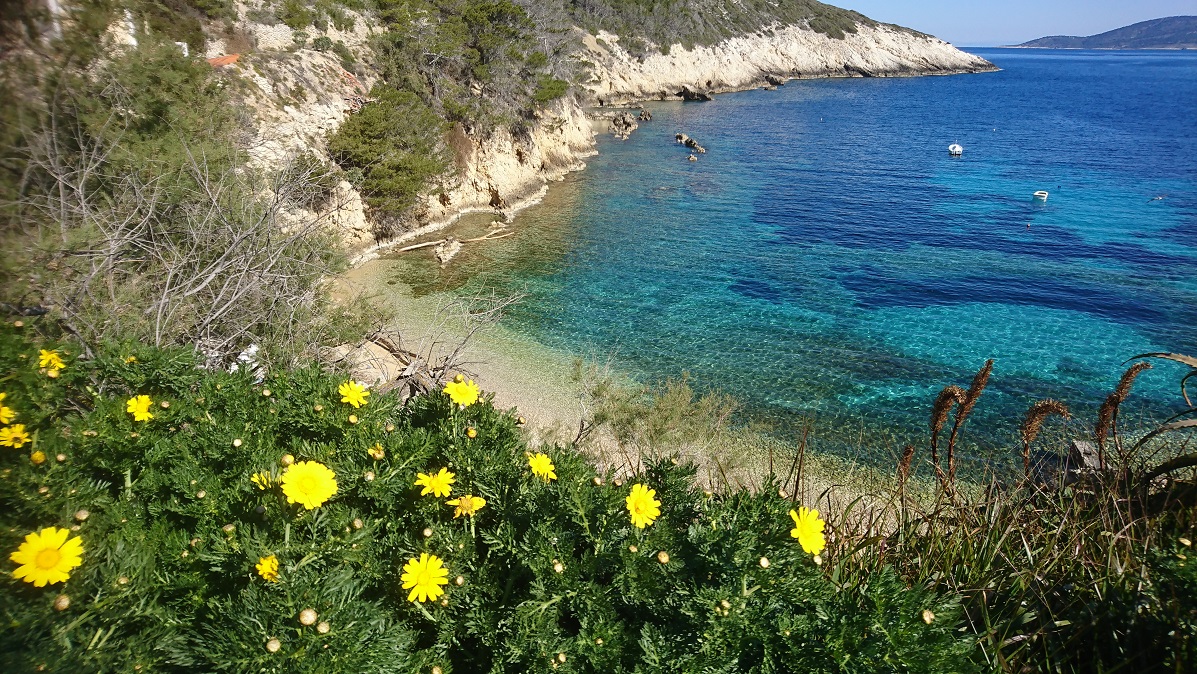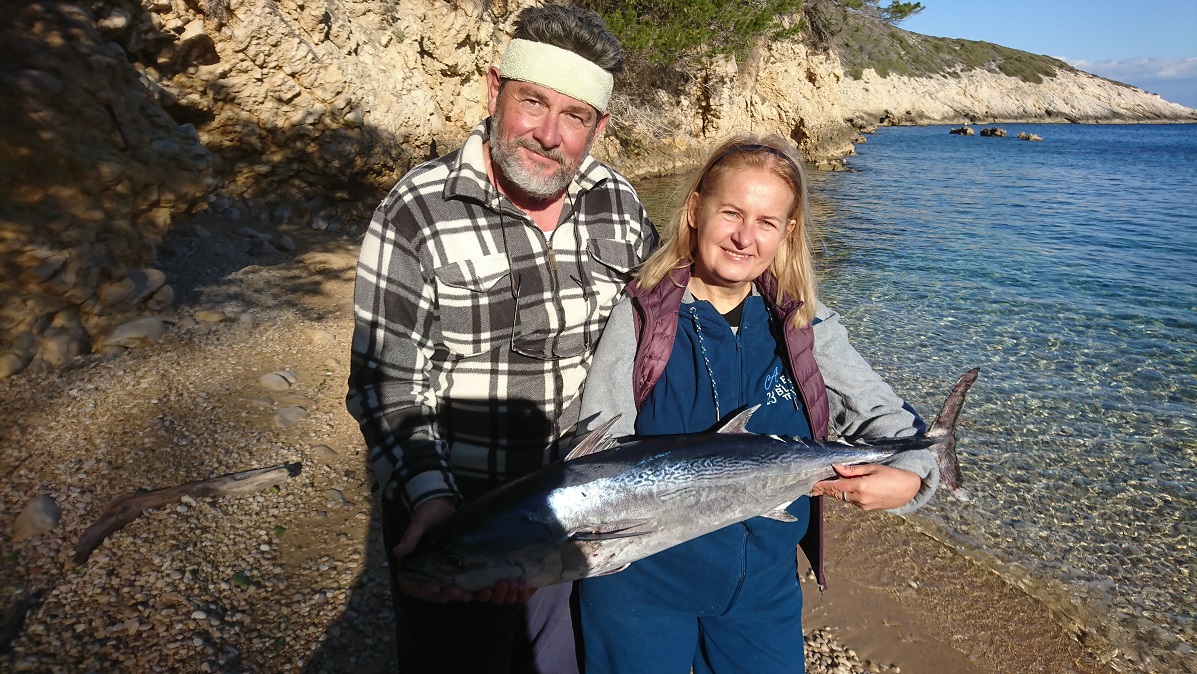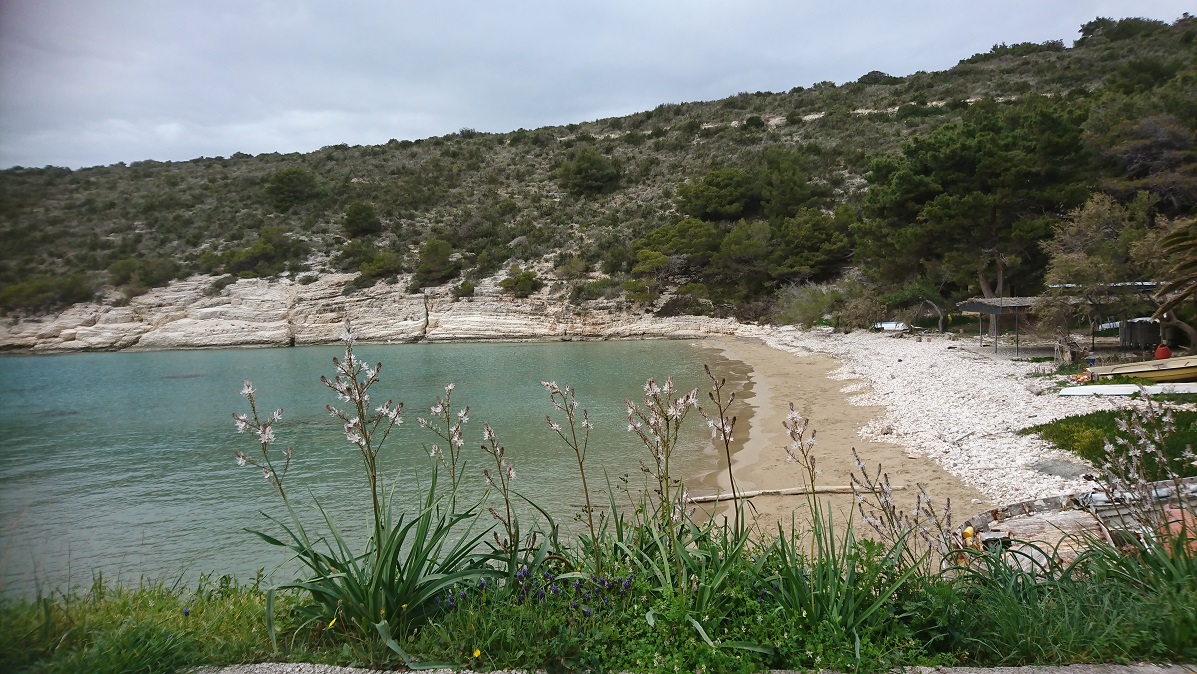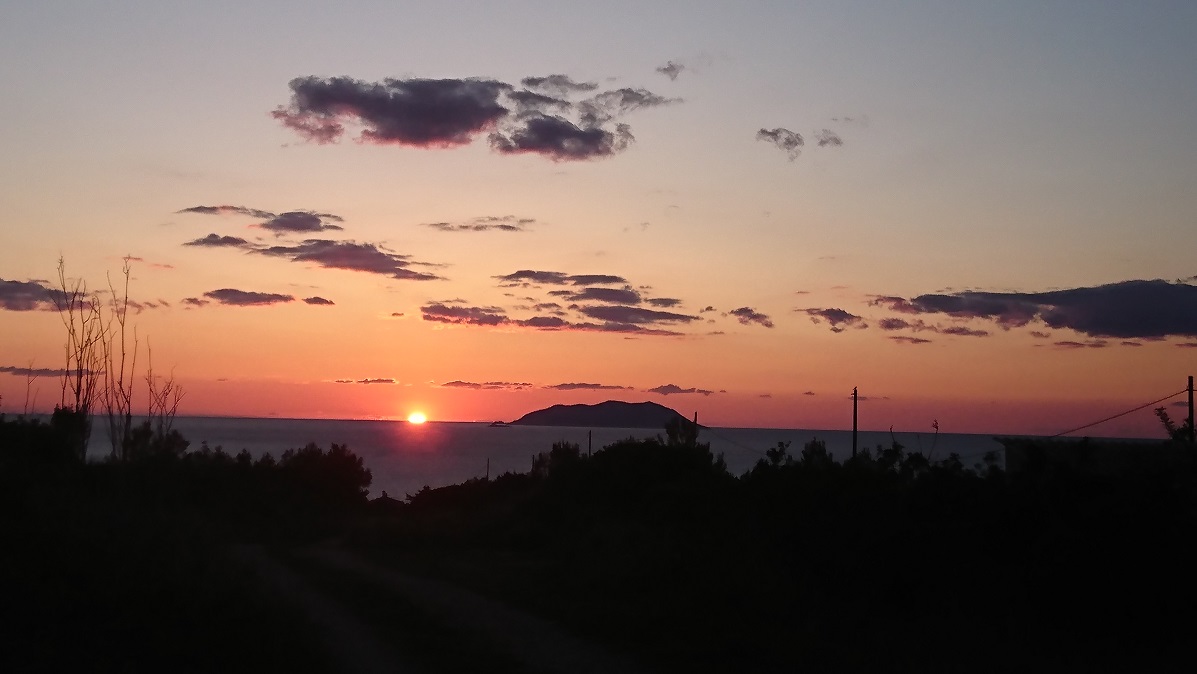Defence Minister Mario Banožić: "Croatian Army is Not Training Ground For Political Rivalry"
ZAGREB, 30 April, 2021 - Defence Minister Mario Banožić said on Friday that the Croatian Army is not a training ground for political rivalry, adding that he will never allow his actions to put the army in a position to be used for political recriminations.
"The key is a Croatian Army that needs to develop. It isn't a training ground for political rivalry. I will never do anything, regardless of whoever wants to put me in that position, to make the Croatian Army a topic for political recriminations. The Army does credit to us all, particularly now when we are marking the 30th anniversary of the Armed Forces and each week we have at least one event," Banožić told reporters after meeting with Kosovo's defence minister.
He recalled that according to his decision based on the Defence Act, the Croatian Army will attend the commemoration of the 26th anniversary of Operation Flash in Okučani. He added that no one had ever made a decision on where the Chief of Staff and other commanders would be, and that will not be the case now.
There's no such thing as the President's Army, there's only the Croatian Army
"This refers to people who participated in the Homeland War, people who are deeply aware of the emergence of the Croatian Army and the way it was formed. They are also aware of the fact that any commemoration, including the commemoration of Operation Flash, makes new generations proud as they need to learn how to behave and love their country," the minister said, underscoring that he expects everyone to behave in that spirit.
"That means that we do not have the President's Army, we only have the Croatian Army which is defined by the Defence Act," said Banožić. He recalled that the Defence Act was adopted in 2013 under the then prime minister Zoran Milanović and said that now as president Milanović certainly knows what changes were made to the act in comparison to the period before that.
"Vital changes occurred then. The Minister of Defence participates in creating the budget and in decisions on how the budget will be spent and reports to the government and parliament," said Banožić. He said he respects the authority of the President of the Republic as the Commander in Chief of the Armed Forces and that they are clearly defined by the Constitution.
Banožić was referring to President Zoran Milanović's statement on Thursday that his delegation at the commemoration in Okučani would include military commanders, while "I don't know who will be with Plenković, but they won't be."
"I think that is something that is quite damaging for the Croatian Army, to politicise it in that way. The Defence Act serves as the basis for further equipping, modernisation and development of the army. Topics like we have had until now concerning peace missions and operations, cooperation with other countries and support to civil institutions. While I am minister we will adhere to that and we will certainly not put any commander in any uncomfortable situation regarding where and with whom he will be," said Banožić.
For more about politics in Croatia, follow TCN's dedicated page.
Zagreb Stock Exchange Indices End Mixed
ZAGREB, 30 April, 2021 - The main Zagreb Stock Exchange (ZSE) indices ended mixed on Friday, with the Crobex decreasing by 0.03% to 1,893.51 points and the Crobex10 increasing by 0.02% to 1,177.94 points.
Turnover at the close of the trading session was HRK 10.1 million, about 500,000 less than on Thursday.
The highest turnover, of HRK 1.4 million, was generated by the Končar Electrical Industry stock. Its price remained unchanged at HRK 715.
Only two more stocks passed the turnover mark of one million kuna.
The stock of the Maistra hotel company turned over HRK 1.3 million, ending the day at HRK 306 per share, up 1.32% from Thursday.
The Arena Hospitality Group stock turned over HRK 1.1 million. Its price fell by 0.65% to HRK 308 per share.
A total of 45 stocks traded today, with 21 of them registering share price increases, 15 recording price decreases and nine remaining stable in price.
(€1 = HRK 7.553299)
For more about business in Croatia, follow TCN's dedicated page.
Over 38,000 Candidates To Run in Croatia's Local Elections
ZAGREB, 30 April, 2021 - More than 38,000 candidates have submitted their nominations for executive and representative positions in the 16 May local elections, State Electoral Commission (DIP) president Đuro Sessa told a press conference on Friday.
Sessa reported on the number of submitted slates and nominations as the filing deadline expired at midnight.
There are 7,104 candidates on the slates for county assemblies, including the City of Zagreb, which has the status of a county, and 28,867 candidates on the slates for city and municipal councils.
A total of 225 people are running for county prefects and their deputies, including the candidates for Zagreb mayor and deputy mayor, and 1,901 candidates are in the race for municipal heads and mayors, including their deputies.
Eleven candidates running for mayors of Split and Rijeka
In Split and Rijeka there are 11 mayoral candidates, ten candidates are running for Zagreb mayor and seven for Osijek mayor.
After local electoral commissions announce valid nominations, electioneering will officially start in counties, cities and municipalities, and will last until midnight on 14 May, when a two-day electioneering ban starts.
The Saturday before the elections and the election Sunday are days of election silence, and the same rule will apply in the second round of the vote, to be held on 30 May.
There will be 6,572 polling stations, and each polling committee will have ten members, Sessa said.
Twenty-five tents to be set up for elections in earthquake-struck Banovina
The conduct of local elections has also been ensured in the earthquake-hit area.
Twenty-five tents will be set up the day before the elections in places where it is not possible to have polling stations inside buildings, said Sessa, adding that there will be eight tents in Glina, seven in Petrinja, four in Sisak, and three each in Donji Kukuruzari and Majur.
He called on voters to adhere to epidemiological measures.
He also confirmed that voters from the Banovina region who had moved away after the earthquake would not be able to cast their vote in another location, adding that he understands their problem but that it is not legally possible to conduct the elections differently.
There will be 14 million ballots in the elections and the organisation would be too difficult logistically, he said.
He recalled that all participants would have to enter their reports on advertising spending in a special IT system, which is a novelty in these elections. They will have to do that seven days before the elections and 30 days after them, Sessa said, noting that all data on finances will be released in one place, DIP's website.
Infected persons and those in self-isolation to vote under same conditions as in July
Persons in self-isolation and those infected with coronavirus will vote in the same way they did in July in the parliamentary elections. Polling committee members will come to their homes, and those infected will be able to cast their vote with the help of another person to avoid contact between polling committee members and an infected person, the DIP president said.
DIP spokesman Slaven Hojski said the election results would be released on election day starting from 9 p.m. and would be updated every 15 minutes.
For more about politics in Croatia, follow TCN's dedicated page.
FM Gordan Grlić Radman Calls on President Zoran Milanović to Unblock Process of Ambassadorial Appointments
ZAGREB, 30 April, 2021 - Foreign Minister Gordan Grlić Radman on Friday called on President Zoran Milanović to cease obstructing the process of the appointment of 19 Croatian ambassadors and to go back to the constitutional and legislative frameworks when performing his presidential duties.
Grlić Radman's statement ensued after the dispute between the government and the president Milanović about the process of the appointment of 19 ambassadors and six consuls-general whose current terms will soon expire.
"I think that the president is behaving like the Opposition leader rather than the head of state," said the minister.
Milanović insists on "a fifty to fifty quota" so that he could nominate a half of those appointments and a half can be proposed by the government, claiming this was the practice of in the terms of some of the previous presidents. Insisting on this quota model, Milanović says that this should fend off the attempts by the Croatian Democratic Union (HDZ) attempts to control everything.
The minister explained that he had not known of the fifty to fifty quota in the past.
This is not the proper way. Croatia's diplomacy is one diplomacy which cannot be fragmented, ambassadors do not belong to somebody, they are top-ranking political representatives in host countries and pursue the foreign policies of their countries, Minister Grlić Radman said.
Grlić Radman recalled that on 23 November 2020 during a meeting of the National Security Council, Prime Minister Andrej Plenković presented a list of ambassadorial nominations to President Milanović and a few days later the presidential office's chief of staff said that Milanović did not want to discuss the list containing the nominations and that he insisted on 50 to 50 quota.
"President Milanović is a co-creator of the country's foreign policy and Prime Minister Andrej Plenković wants to discuss this with him, as the list has to be fine-tuned", the minister said today.
He also called on the president to stop using offensive language.
For more about diplomacy in Croatia, follow TCN's dedicated page.
Foreign Minister Gordan Grlić Radman: Croatia and San Marino For Expanding Cooperation
ZAGREB, 30 April, 2021 - Croatia and San Marino have great potential to expand their cooperation in their mutual interest, particularly in the economy, culture and tourism, Croatia's Minister of Foreign and European Affairs Gordan Grlić Radman said on Friday after meeting with his counterpart from San Marino.
Luca Beccari as San Marino's Minister of Foreign Affairs, International Economic Cooperation and Telecommunications is currently on a working visit to Croatia. This is the first visit ever by a minister from San Marino to Croatia.
Croatia and San Marino do not have any outstanding issues and they are working on expanding their cooperation in their mutual interest, said Grlić Radman.
"In that regard, I see development potential for our cooperation in the fields of economy, culture and tourism, having in mind our common Mediterranean orientation and the free access that San Marino has to the European Union market," underscored Grlić Radman.
According to Grlić Radman, the two countries are committed to the strategies and objectives of the Adriatic-Ionian Initiative, which San Marino joined in 2019.
He recalled that San Marino, along with Andorra and Monaco, was implementing the agreement of accession to the European Union, and expressed Croatia's support for the continuation of negotiations and hope that they would be concluded successfully.
Grlić Radman did not omit to thank Minister Beccari for the aid that San Marino had sent to the earthquake-struck areas of Sisak-Moslavina County.
Beccari said that this bilateral visit is an opportunity to take one step further in strengthening mutual cooperation, particularly in the areas of economy, noting that San Marino deeply appreciates Croatia's support when it comes to accession to the EU.
That process was launched in 2015 and we hope that it will be concluded soon, primarily thanks to the support of friendly countries, said Beccari.
In addition to cooperation within the EU market he underscored cooperation between the two countries within the Adriatic-Ionian Initiative as a concrete common platform.
In that way we can have cooperate bilaterally but also with all other neighbouring countries, said Beccari.
He emphasised that San Marino is resolute in cooperation in the fields of economy and that it invests a great deal in new technologies, particularly those related to sustainable development.
During a joint press conference, Grlić Radman spoke about the long historical ties between the two countries, recalling that according to legend the founder of San Marino was Saint Marinus from the island of Rab.
The city of San Marino has had a twin-city agreement with the city of Rab since 1968, and that charter was renewed in 2018.
Minister Beccari will visit Rab during his stay in Croatia.
For more about diplomacy in Croatia, follow TCN's dedicated page.
Krka National Park Ticket Discount: Walk for a 20% Cheaper Visit in May
April 30, 2021 - Throughout the month of May, a Krka National Park ticket discount is going to be offered in the Park's "Go and Walk" action, which provides a 20% cheaper ticket to any visitor ready to enter and exit the premises on foot.
Krka National Park, as stated on their website, is going to be inviting visitors to enter the Park on foot and get a 20 percent discount on their individual ticket price for doing so. This offer is part of the ''Go and Walk'' action, which starts on Saturday, May the 1st, and is set to continue throughout the whole month.
''The ''Go and Walk'' promotional action implies that people must enter and exit the park on foot in order to get the Krka National Park ticket discount of 20%. All of the park's other services, as well as tickets for visitors who will enter the park by boat or a bus, will be charged by as normal,'' according to Krka National Park's official website.
The discount varies pending on where you intend to go. If you decide to go to the main spectacle of the park, The Skradinski Buk waterfall by taking the hitchhiker trail, either from Lozovac or Skradinski Bridge, the promotional price is 80 kuna. Apart from Skradinski Buk, all other land localities in the park are set to be included in that price. Kids aged 7-18 accompanied by parents or guardians will have to pay only 64 kuna for their ticket, while for kids up to the age of 7, entrance to the park is free of charge.
If you decide to walk only until Roski Slap, an adult ticket will cost 40 kunas and for kids (7-18-year-olds), only 32 kuna.
The third option is also the Krka Monastary and Burnum archaeological site. An adult ticket price for that path is 32 kuna, while the children's ticket costs a mere 24 kuna.
''With the ''Go and Walk'' action, the Public Institute of Krka National Park wants to encourage the active visiting of the park, and the usage of educational-hitchhiking trails too, by reducing the usage of public transport by bus and boats and having a direct impact on lowering CO2 emissions,'' said Nella Slavica of the Public Institute of Krka National Park.
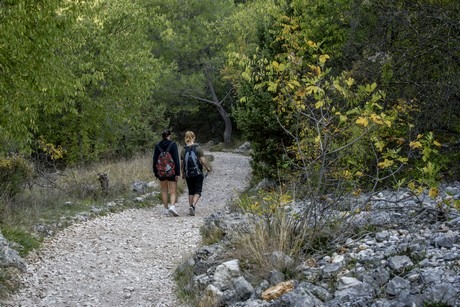
© Krka National Park
Krka National Park is also a holder of the ''Stay Safe in Croatia'' badge, and the park is being very careful in ensuring epidemical measures are respected by both the visitors and employees while informing the public about the benefits of being out in the open air during these challenging times.
Back in the former Yugoslavia, on January the 24th, 1985, the Parliament of the Socialist Republic of Croatia declared Krka a National Park, and it has enjoyed an enormous amount of popularity ever since. This gorgeous park remains a place of natural and cultural heritage, a place to learn, a place to rest, and a place to enjoy a lovely escape from the stress of modern life.
Learn more about Krka National Park on our TC page.
For more about travel in Croatia, follow TCN's dedicated page.
Bikademy Virtual Loyalty Card is Now Available for All Users
April 30, 2021 - After a great start with their learning-by-cycling app, a Bikademy virtual loyalty card with discounts on bicycles and parts is now available for its users.
Hrturizam.hr reports that a Bikademy virtual loyalty card has been announced by its creators who, through a strategic partnership with the Giant cycling store, will offer discounts and offers for the Bikademy students.
The only step that users have to take is to register on the Bikademy app, which is available in both Google Play and the Apple App Store. ‘‘Once installed, you will find in the upper right corner of the Index your virtual card with which you will have additional benefits from our partners. And the first partner is Bikademy sponsor: Giant Croatia! When you buy in the Giant Store, you must show your Bikademy virtual loyalty card with the code, and the following benefits are provided: -10% on Giant Liv bikes, -20% on Giant Liv accessories -5% on Maxxis tires and tubes, Shimano, Salomon, BikeWorkx, Endura, Basil and a complete range of other brands and brands”, says Krešimir Herceg from Bikademy.
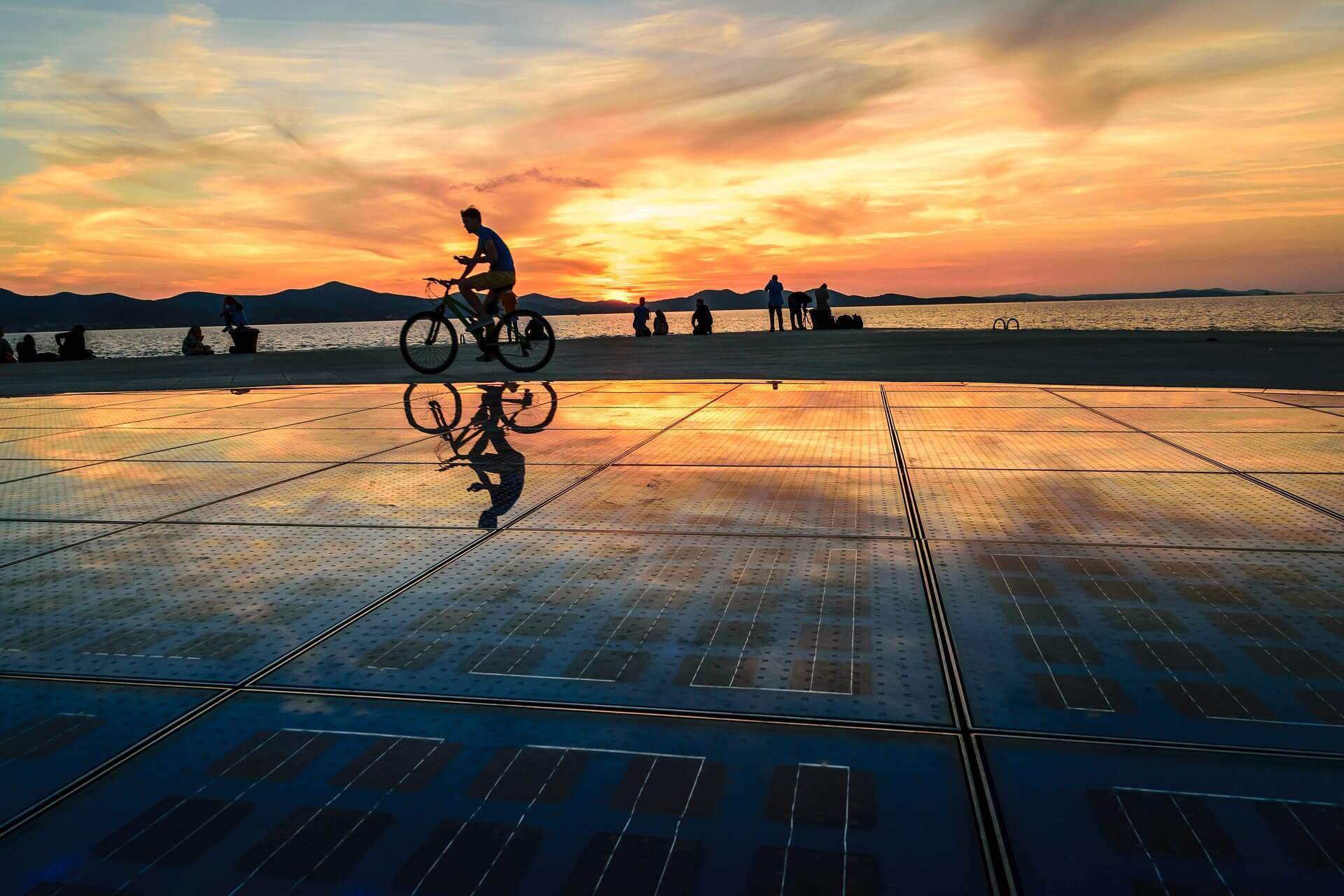
Credit: Ivan Vuksa (Pixabay)
The Bikademy app was launched as an interesting concept that shows destinations through studies, consisting of natural and cultural heritage sites, representing the Bikademy Exams. Ideal for exploring the entire destination and connecting with tourist attractions and entities.
It promotes micro-regions (cities and regions) as desirable cycling tourist destinations in an interactive, educational and fun way. The basis of this product is a platform with fields of studies that represent certain regions or cities. Each study has its own exams (locations). Exams are passed when a user, also called Bike Student, visits that location with their bicycle and takes a selfie at the location.
For users to pass any exam, they shall first register if they are new users (Bike Student). Their tasks are visiting locations (also known as the exams) of certain studies, by bicycle. They have to take a selfie with their bikes at that location through the app (GPS and data have to be turned on). After passing every exam of a certain study, they will be rewarded. There is no order to pass the exams, as they can be taken randomly.
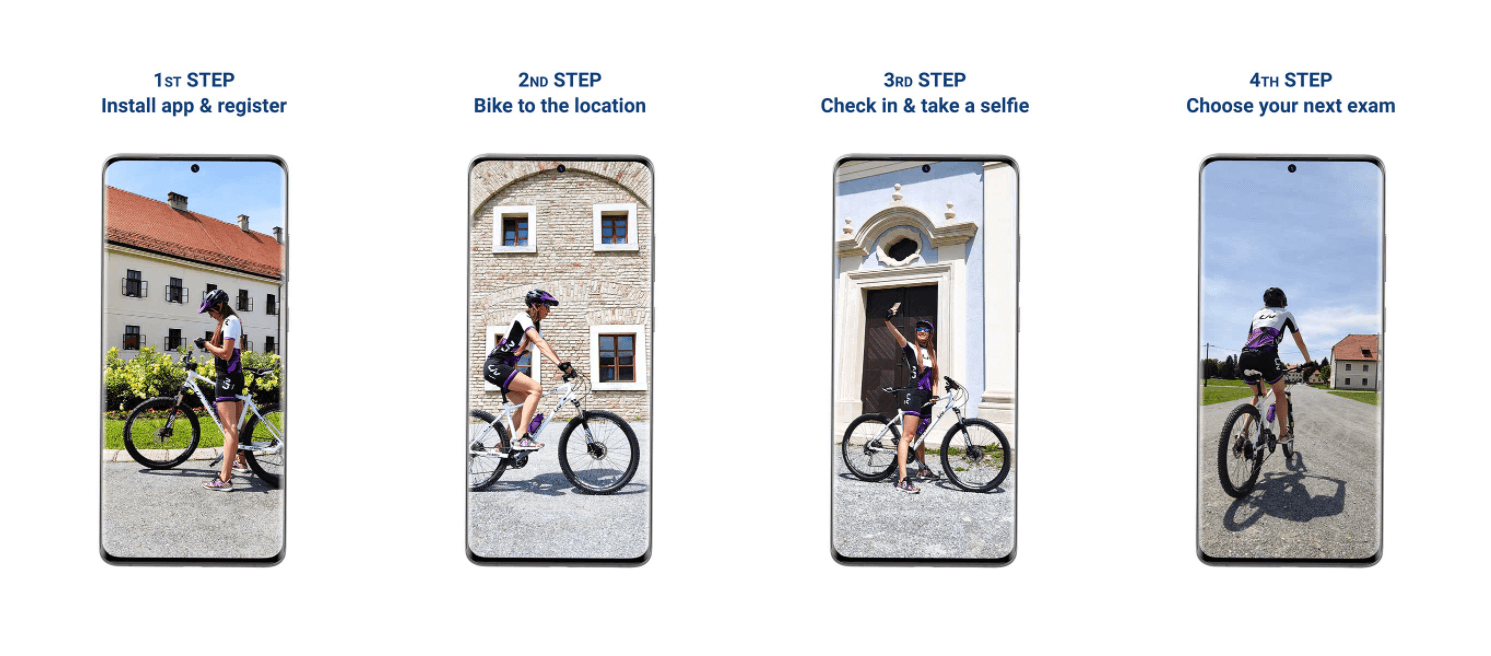
“Many thanks to Giant Croatia for its great long-term support to the entire project. We certainly plan to introduce other partners who are primarily in the world of cycling, and then cycling as a sport. We will continue to build this story so that our customers can have even more benefits’’, stated Herceg.
The platform is primarily intended for an increasing number of cyclists, both foreigners visiting our country and domestic, and thus can serve as an excellent tool and added value in the tourist offer of destinations. How to extend the tourist season? By creating quality content, especially in the post-corona era where the focus is on active and sustainable tourism.
Currently, Bikademy has ten exams or studies in Croatia and one in Berlin, and soon Bikademy will be implemented in Šibenik as well. ‘‘We just found out how the project passed us in a tender of the Ministry of Tourism which will make several trainings on the use of the Bikademy application and concept, and we will open a new study: the region of Sibenik. I hope that we will soon come out with more concrete information and details’’, concludes Herceg.
To learn more about Bikademy, visit their official website.
For more information about cycling in Croatia, go to Total Croatia's dedicated page.
For more on travel in Croatia, follow TCN's dedicated page.
Croatia's Coronavirus Update: 2,007 New Cases, 41 Deaths, 2,337 Recoveries
ZAGREB, 30 April, 2021 - In the last 24 hours, of 9,282 tests performed for coronavirus, 21%, that is 2,007, have returned positive, the Croatian national COVID-19 crisis management team reported on Friday, underscoring that the portion of positive tests today was by seven percentage points lower than last Friday.
In the last 24 hours, the COVID-related death toll has increased by 41 to 7,081.
Currently, there are 14,507 active cases, including 2,237 hospitalised patients of whom 253 are placed on ventilators.
Since the first confirmed case of the infection with the novel coronavirus in Croatia on 25 February 2020, as many as 1.8 million tests have been performed showing that 332,183 people have contracted the virus. Of them 310,595 have recovered so far, including 2,337 recoveries in the last 24 hours.
There are currently nearly 34,000 Croatians in self-isolation.
Under the vaccination rollout plan, 872,726 shots against this infectious disease have been administered. The national COVID-19 crisis management team reported today that 682,757 people had got vaccinated. As many as 490,230 people have received the first shot, and almost 190,000 have been inoculated by both doses.
For more about COVID-19 in Croatia, follow TCN's dedicated page.
From Warsaw to Bisevo: Meet Beata and Her Amazing Life on the Adriatic
April 30, 2021 – TCN recently talked with Beata Przybyszewska Kujawa from Poland who moved from Warsaw to Bisevo island and started a new, significantly different life. As she says, the Adriatic impresses her and she is enjoying her new island life. She sees the greatest potential in eco tourism in Croatia, and her dream is to open a Biševo Museum. Here's her full story.
You believe that the Adriatic Sea and its coast had healing properties for you because you managed to solve some health problems you had by coming to the Adriatic. Other people have confirmed the same. What thrilled you the most in Dalmatia?
I first came to Dalmatia, more precisely to the island of Hvar, during a tour organised by the ORBIS travel agency back in 1980 – back in the times of the former Yugoslavia. I remember walking along the shore from the Sirena hotel towards Hvar Town. I saw the sunset illuminating the white stone houses, surrounded by palm trees and the calm, sparkling surface of the sea. I felt a rush of emotions coming over me, and, for the first time in my life, I started crying with delight.
From that moment on, I started travelling around Croatia very often, and it was Dalmatia, and especially the islands, that delighted me the most. I want to add that I have visited many countries across the world: the USA, Canada, Russia, Ukraine, Tunisia, Sweden, Denmark, Switzerland, France, Austria, Italy, Romania, Bulgaria, and Greece, but Dalmatia is my place on Earth, and here I feel the best. I consider the Adriatic Sea to be the most beautiful in the world, not only for its aesthetic beauty but also thanks to the health benefits it provides.
Mezuporat on Biševo
I have felt on my own skin many times that swimming in the Adriatic Sea is an irreplaceable therapy that strengthens my health and immunity. Thalassotherapy – sea therapy, hundreds of bioelements and minerals dissolved in the sea, the sun - a source of natural vitamin D3, clean air, the Mediterranean vegetation – all of these are indispensable factors necessary for our health.
Surprisingly, I 've noticed that the locals often don't take advantage of these benefits of nature and what they have at their daily disposal! They rarely swim in the sea. They consider it an activity meant for tourists who rent apartments and are essential for their household budgets.
Up to this day, I'm still delighted with the Dalmatian climate, the combination of flora and fauna, the sea, and the mountains. I'm captivated by the colurs and the clarity of the Adriatic Sea, all the indescribable scents, an aromatherapeutic cocktail of rosemary, lavender, Mediterranean pine, salt, and algae. All this is intertwined, giving a person what they need, but if only they want to take advantage of its benefits.
Gatula on Biševo
You're interested in spas and wellness, as well as in nature and plants. What do you consider to be the greatest natural treasure in the Adriatic Sea? What do you think, what do we have, and what else is needed for so-called wellness tourism?
In Poland, I'd been actively promoting a healthy lifestyle for over 25 years. I hold a Master's degree in public health and diplomas in the fields of cosmetology and health promotion. I had my own publishing house, which had been publishing the "Gabi. Net - Estetyka & Zdrowie" magazine for over ten years. I've organised over 180 congresses, training sessions and workshops on a healthy lifestyle, spas, and wellness. I was a consultant in this field for many hotels and wellness centres.
Here in Dalmatia, there's a massive potential in the area: there are hundreds of plants, herbs, natural substances, and ingredients that can be used in pro-health and anti-stress therapies in the SPA and Wellness industry: for massages, peelings, inhalation, baths. For seniors who have problems with their sleep, walking, or bad joints, business people who are often too stressed out, people who are obese and those recovering from various illnesses.
Mezuporat Bay on Biševo
Now, during the coronavirus pandemic that is doing damage to our respiratory system, we must pay attention to the body's oxygenation, proper, deep breathing, as well as room ventilation. Gymnastics, outdoor yoga, swimming, and the intentional use of the sun are very important in supporting our immune system.
Therefore, I see the greatest potential in so-called eco tourism – being among nature, with an active form of rest, immersed within nature and all of the gifts it provides.
Porat Bay on Biševo
You're also interested in culture and you think that there is excellent cultural potential in Dalmatia. What do you think, how would it be possible to develop it?
During my last six years in Warsaw, I worked as a culture inspector in the Mokotów district. I organised concerts, exhibitions, and other cultural events. I was also the president of the Polish-Croatian JADRAN Association. Among other things, we were focused on cultural contact between our countries. As such, we organised Croatian Culture Festivals in Warsaw, where we hosted musicians such as Parni Valjak, Goran Karan, Ana Rucner, and 'klapa' groups from the islands of Šolta and Brač. These events were exciting, promoting both Croatia's culture, art, and cuisine.
Dalmatia has excellent cultural potential. Its unique, ubiquitous music and ancient architectural heritage are the elements that, in my opinion, create its strongest points. International music meetings and making music together would be an exciting idea.
For example, during one of the Croatian Festivals, two female music groups joined together: the Polish band Służewianki and the Croatian 'klapa' group Čuvite from the island of Šolta. These ladies sang the song "Mariana," together, which is well known both in Poland and in Croatia. It's similar in the realm of poetry. I think organising international poetry meetings would make for a great experience.
For example, on the island of Šolta, in Nečujam, where Krzysztof Kamil Baczyński, one of the greatest Polish poets, stayed twice during the summers of 1937 and 1938, it turned out he stayed in the very same house in which the great father of Croatian literature, Marko Marulić, wrote the poem "Judita." This beautiful stone house is still standing there, begging for renovation. On its facade hangs a plaque dedicated to Marulić, and in front of the house, there is a plaque made of white marble in honour of Krzysztof Kamil Baczyński.
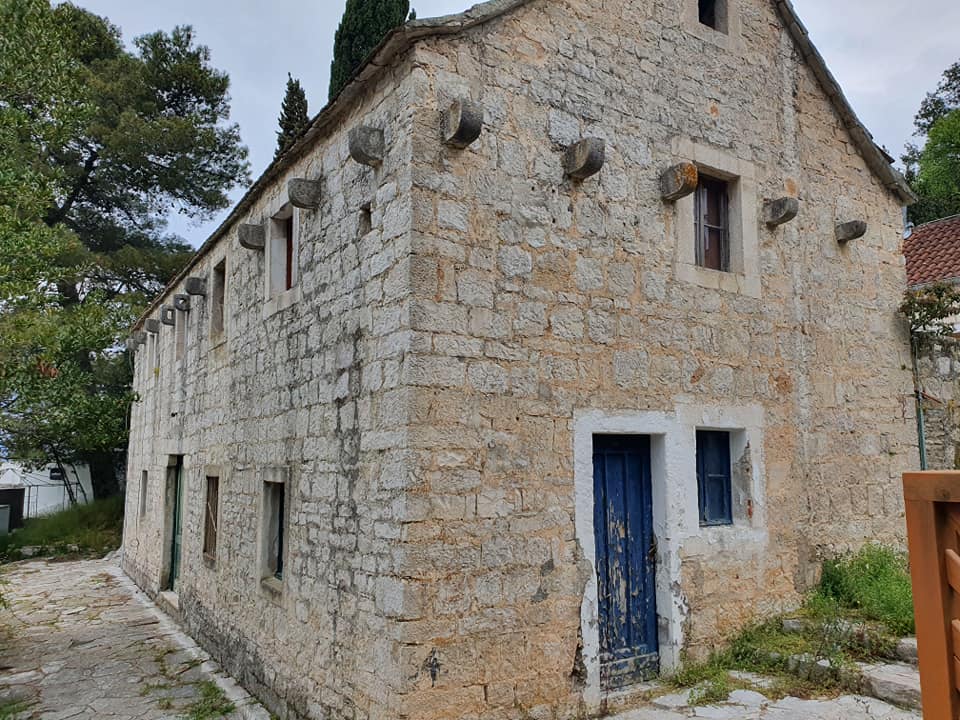
The Marko Marulić residence in Nečujam on Šolta, pictured on April 26, 2021 by Damir Jerčić, taken from the Naš Nečujam Facebook group
In the nearby church of St. Teresa, in Rogač, there is also an impressive plaque in honour of Marshal Józef Piłsudski, who in the 1930s was a model and great authority in many countries. Piłsudski also visited the Dalmatian coast, and also went to Opatija.
It would be great to establish memorial rooms for both of those great poets in this extraordinary house in Nečujam on Šolta and to organise regular poetry meetings. Another reason for that is that the great Croatian poet, Vesna Parun, also used to stay and now rests on the island of Šolta.
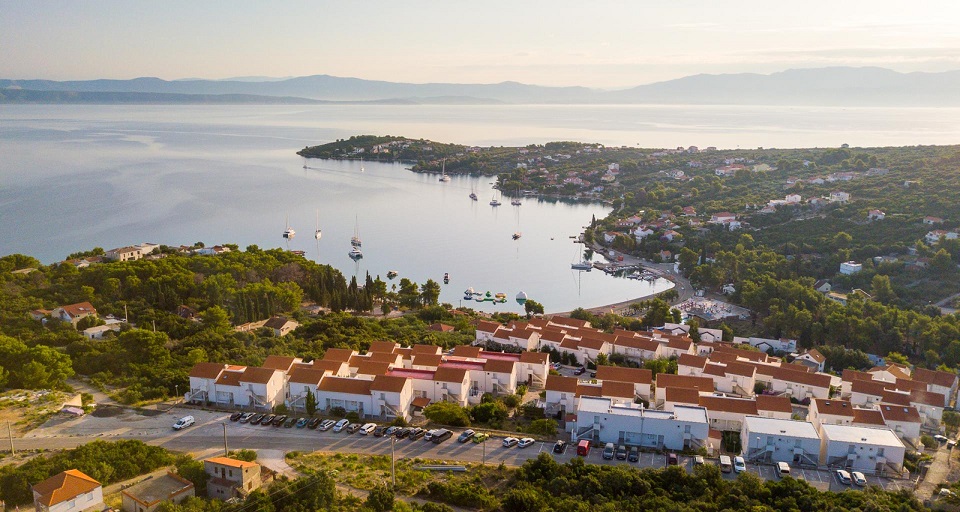
Nečujam on Šolta / Šolta Tourist Board
As you said, your greatest wish is to open a museum of "everything that was thrown out by the Adriatic Sea" in Biševo. What would be the theme of the museum? When can we expect this project to be realised? Are you already taking any steps?
My first artistic venture on the island of Biševo, where I've been staying since January this year, was painting stone Easter eggs, called 'pisanki' in Poland. I decorated a dozen of them and gave them to the island's inhabitants, along with my warmest Easter greetings. That was a way for me to meet and introduce myself to them.
Around a dozen people are living here permanently. In summer, more people come from the neighbouring island of Vis, not to mention the thousands of tourists who visit Biševo mainly to see the exceptional Blue Cave.
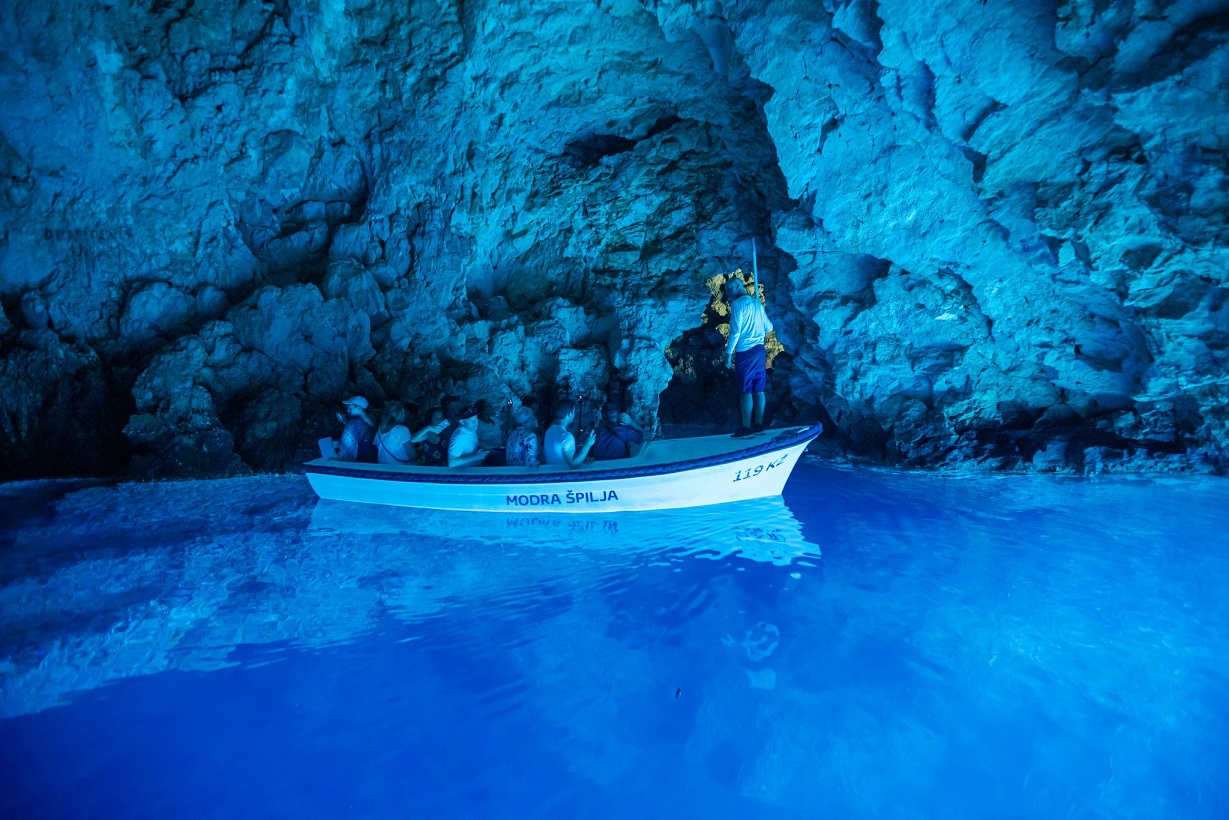
Blue Cave on Biševo / Romulić and Stojčić
As part of the 'Kamen i Krš' project, a former school is being expanded and rebuilt as a tourist facility with a restaurant and cultural attractions meant for visitors of the Blue Cave. There are more tourist attractions in preparation – the "Bear Cave" and also a system of underground tunnels from World War II, which may serve as a space for the organisation of, for example, natural or historical exhibitions.
Tunnels from World War II on Biševo
Before Easter, in the tiny, unusual, ascetic church of St. Sylvester from the 11th century, I made the installation of Christ's tomb from stones and linen that I found on the beach. Also, a crown of thorns was made of the roots and plants brought by the sea. Locals joined me in these activities, and we shared a beautiful holiday, both in the spiritual and "bodily" sphere, preparing Easter treats from both Croatian and Polish cuisine together.
Church of St. Sylvester from the 11th century
I love to paint, draw, create compositions from stones, plants, grass, and plant fibers. I often go to the nearby beach and collect what the sea brings me: pieces of glass, pieces of wood "polished" with the sea salt, interestingly shaped stones, shells, and cones. I then create various compositions from them; I just need to get the suitable glue and other necessary materials.
An installation that Beata made of stone for Easter in the church of St. Sylvester on Biševo
I dream of creating the Biševo Museum in the future, where old objects and photos of life on the island and its inhabitants would be displayed, as well as artistic compositions made of materials that were thrown out by the sea. However, we'll need a suitable space for that, which is the hardest thing to find.
Describe your island life on Biševo without the water and the crowds, unlike your life in a big city like Warsaw?
In Warsaw, I lived very intensely and actively for more than 12 years. I had my own company, a husband, two sons, social activities, and that used to occupy almost all of my time, not leaving much free time just for myself. There has always been a longing for nature inside me, a desire to immerse myself in nature and live surrounded by it, away from all the hustle and bustle, all the rush and polluted air.
From that came my love of travelling and this long-dormant dream of living in Dalmatia. Now this dream is coming true because my sons are grown up, and after my husband's death, I found a partner who comes from the tiny island of Biševo.
I'm living a simple life here, being at one with nature and the magnificent Mediterranean landscape that changes every day. In the morning, I open the window, listen to the cries of the seagulls and watch the shimmering colours: from azure – blue – to dark navy blue – the most beautiful sea in the world – the Adriatic Sea; huge palm trees and aloe trees, and carpets of colorful flowers.
Then we catch fish, grow herbs and flowers, we make jam from oranges, mandarins, aloe flowers, dry citrus peels, and herbs from which we also make teas, liqueurs, and tinctures, and we pickle fennel and capers. My partner Mladen is a great cook, so the daily kitchen activities are not too tiring.
Beata and her partner Mladen fishing on Biševo
We're currently renovating the house and widening our garden, so there's a lot to do. The lack of running water on the island means that it is necessary to conserve it and use almost every drop we collect. The so-called 'guštirnie,' water tanks collecting the rainwater are an obvious necessity here, so each house has at least one of them.
In crises, when drought robs the island of rain, a ship that supplies water comes here so that we can buy it. Gardening is currently one of the biggest challenges for me. We have planted some vegetables, fruits, herbs, and flowers, and, despite the water restrictions and strong winds that often blow on the island, we hope we will able to harvest all we have planted.
Porat Bay on Biševo island
You've gathered together 68,000 Poles in love with Croatia in one Facebook group. What's the name of the group? When did you start it, and for what purpose?
My private Facebook group called 'Chorwacja,' which I founded almost nine years ago, already has around 68,000 members, which confirms how very popular Croatia is among Poles, one of the top nationalities most frequently visiting Croatia. It has been said that last year the whole tourist season was saved thanks to the Polish tourists arriving in great numbers, despite the pandemic.
However, I noticed that even though so many tourists come from Poland to Croatia, there's still a lack of information available in Polish – in restaurants, cultural facilities, and guides. This gap should be filled as soon as possible. I founded the Facebook group to allow people to exchange experiences related to this country, discover exciting places, and promote Croatia's culture, history, and customs.
To read more about lifestyle in Croatia, follow TCN's dedicated page.
Lufthansa Flights to Zadar and Pula Resume this Weekend!
April 30, 2021 - The latest flight news to Croatia as Lufthansa flights to Zadar and Pula resume this weekend!
Croatian Aviation reports that German national airline Lufthansa will operate again today to Pula and tomorrow to Zadar.
Germany's Lufthansa is resuming traffic on two more lines to Croatia. After the company reconnected Frankfurt and Zagreb and regularly operates on routes from Munich and Frankfurt to Split and Dubrovnik, as of this weekend, Lufthansa includes two more destinations in Croatia - Pula Airport and Zadar Airport!
From today, Pula Airport will once again have a regular route to Frankfurt. Lufthansa will operate the first flight on this route in the late afternoon, then again tomorrow, and flights throughout the week are announced once a week, every Saturday. The number of weekly flights should increase in June, and then the Munich-Pula-Munich route will be introduced.
On Saturday, May 1, Lufthansa will make its first flight in this summer season on the Frankfurt - Zadar - Frankfurt route. An E190 aircraft has been announced for the first flight, and flights will take place once a week, every Saturday, until the end of May. A larger number of weekly operations is expected on this line in June as well.
Next Saturday, May 8, Lufthansa will resume traffic on the line between Zadar and Munich once a week (Saturday).
This weekend, Lufthansa will have as many as 7 international routes to 5 Croatian airports, and as of next weekend, 8 of them. Rijeka Airport, another Lufthansa destination in Croatia, will not have flights for some time. Namely, scheduled flights on the route from Munich and on the new route from Frankfurt have been postponed to the beginning of July.
Tickets are on sale on the airline's official website, and, as with most other companies, travel date changes are allowed if you are unable to travel on the originally planned date.
Follow the latest on flights to Croatia HERE and the latest travel updates and COVID-19 news from Croatia HERE.
For more on travel in Croatia, follow TCN's dedicated page.


